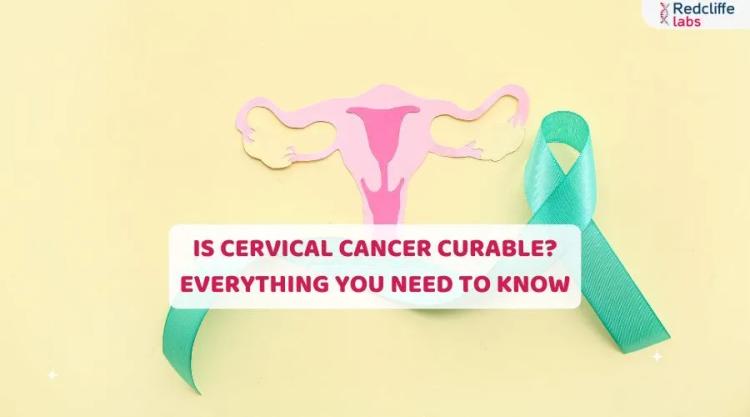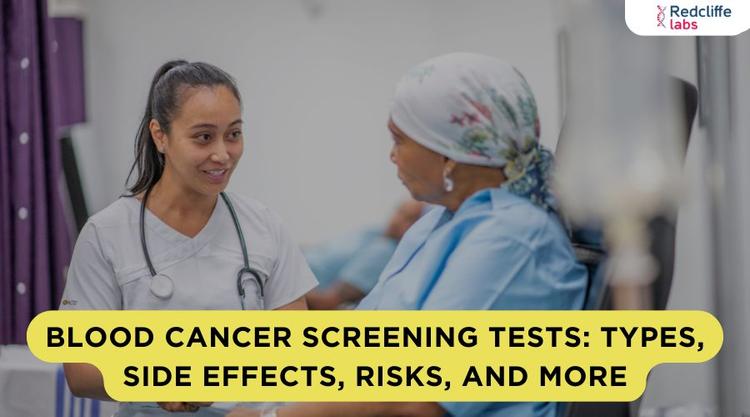A Comprehensive Guide to Cancer Tests, Price, List & More

Medically Reviewed By
Prof. Ashok Rattan
Written By Sheena Mehta
on Feb 27, 2025
Last Edit Made By Sheena Mehta
on Jul 19, 2025

A cancer screening profile test is vital to help a healthcare provider detect cancer early, even before the symptoms appear or before it takes a toll on your health. Regular cancer screenings also increase the chances of successful cancer treatment.
The cancer tests are designed to check for certain cancer markers in the blood. Cancer markers are proteins that cancer cells make or produce due to changes in the DNA. Performing the cancer test helps a healthcare provider identify these markers, confirming the presence of cancer and its type.
Today’s blog underlines the need for cancer tests, cancer tests for men and women, and more.
7 Top Reasons: Why Cancer Tests Are Important?
The primary reason a cancer test is important is to save lives from cancer. Early screening helps detect cancer in its initial stage, and the treatment is more likely to be successful and save lives.
- Early detection: Getting a cancer test early improves the chances of treatment and survival rates. Screening tests such as mammograms, Pap smears, or colonoscopies help detect cancer in the initial stage before even the symptoms appear. Early detection also prevents disease progression in other parts of the body.
- Accurate diagnosis: Early detection and accurate diagnosis help confirm whether cancer is present and what type it is. This information helps a doctor design a personalized and effective treatment plan. Hence, along with specialized cancer marker tests, tests such as blood tests, imaging tests like CT or MRI scans, and biopsies are likely to be prescribed to help a specialist leave no stone unturned in giving an accurate diagnosis.
- Monitoring and treatment planning: Once the cancer is diagnosed, the doctor will determine its severity and spread. He may also order additional tests, such as genetic or molecular profiling, to identify targeted therapies. Depending on the cancer stage and test reports, doctors decide on the best treatment, such as surgery, chemotherapy, radiation, or immunotherapy.
- Tracking progress and recurrence: Regular follow-ups of cancer tests help monitor treatment and check for recurrence. Several imaging or tumor marker tests are suggested to monitor changes over time.
- Prevention for high-risk individuals: Additionally, certain tests for cancer, such as the BRCA gene test, are suggested to detect changes in the DNA that can result in breast and ovarian cancer. Thus, preventive measures such as lifestyle changes or surgery can be implemented depending on the test results.
- Reduced mortality: Early cancer tests empower you to make informed choices about your health, potentially saving lives.
- Improving quality of life: Nevertheless, early detection and appropriate treatment also improve the quality of life by minimizing complications.
What are recommended cancer screening tests?
A healthcare provider suggests a cancer test to detect cancer even before symptoms appear, contributing to a successful treatment. An effective screening test helps identify cancer early, reduces the chances of dying from the cancer with regular follow-ups, and it is more beneficial in several ways than causing harm.
Here are the most recommended cancer screening tests for men and women by experts that are considered effective.
6 Common Cancer Tests for Women
Cancer is common in females. They are susceptible to suffering from breast cancer, ovarian cancer, or even cervical cancer. If the cancer is detected early, it improves the treatment outcomes, including improved survival rates. In this comprehensive guide to cancer tests for women, we will shed light on the most common cancer tests for women, including:
- Breast cancer screening (Mammography): It is a vital test for women between 40 to 74 years of age. Healthcare experts usually recommend the breast screening test for women at the age of 40 to screen for abnormalities in their breasts and decide on the treatment accordingly.
Additionally, a healthcare provider may also suggest magnetic resonance imaging (MRI) to screen women with a high risk of cancer.
Symptoms include breast pain, thickening of the breast skin, nipple discharge, and changes in breast size or shape.
Did you know?
Breast cancer is the most common type of cancer globally. Approximately 3, 10, 720 women in India are diagnosed with invasive breast cancer by the year 2024.
- Cervical cancer screening: The cervical cancer screening is suggested for women at age 21 to 65. This test includes Human Papillomavirus (HPV) tests and Pap tests for cervical cancer screening that can be done alone or in combination. Let’s understand them in detail.
- Human Papillomavirus (HPV) test: The test is a diagnostic tool used to check for the presence of high-risk strains that lead to cervical cancer and other health issues. The HPV test is typically suggested for women but may be recommended for men with evidence of genital warts.
- Pap Test: A Pap test (Papanicolaou test) helps detect cervical cancer and precancerous changes in the cervix in women.
Symptoms: unusual bleeding between periods after sexual intercourse or after menopause, foul-smelling vaginal discharge, loss of appetite, vaginal discomfort, or continuous pain in legs, back, or pelvis.
- Colorectal cancer screening: A colorectal screening test for women is the third most common cancer, ideally suggested between 45 and 75 years old. Early screening helps detect precancerous growth (polyps) or cancer in its early stages.
Symptoms: bleeding in the stool, weakness, unexplained weight loss, abdominal pain, or cramps.
- Lung cancer screening: This type of cancer test in women detects lung cancer in its early stages. Women aged between 50-80 years should be screened if they have a smoking history or are current smokers. Besides, women with occupational exposure to carcinogens should also be screened.
Symptoms include chest pain, shortness of breath, coughing blood, tiredness, and wheezing.
Also read: https://redcliffelabs.com/myhealth/cancer/breast-cancer-in-men-symptoms-diagnosis-and-treatment/
- CA-125: This cancer test helps detect elevated levels of CA-125 protein, often linked to ovarian cancer. It is ideal for women with a family history of ovarian or related cancer or already getting treatment for ovarian cancer or recurrence.
Symptoms: pelvic or abdominal pain, increased abdominal size, bloating, and difficulty eating.
- Urinalysis is a routine test that evaluates overall kidney and urinary health. The test can help find some bladder cancer early.
Symptoms: back pain, frequent urination, blood in your urine, or other urinary tract problems.
6 Common Cancer Tests for Men
Similarly, cancer screening for men is vital for early detection, better treatment outcomes, and improved survival rates. Below are six common cancer tests for men, including their symptoms.
- Prostate-Specific Antigen (PSA) test: It helps screen for prostate cancer in men. It measures PSA levels in the blood. The PSA test for men is a simple blood test suggested for men with a family history of prostate cancer or men above 50 years old.
Do you know?
Prostate cancer is the leading cancer among men, with 2,990,010 expected cases worldwide.
Symptoms: peeing more than usual, blood in your pee, having an overactive bladder, which causes sudden urge to pee, or problems keeping an erection.
- Colonoscopy: This test helps detect precancerous polyps and colon cancer in men. It is ideal for men over 45 or those with a family history or other risk factors.
Symptoms: rectal bleeding, abdominal pain, stomach cramps, sudden weight loss, or getting a feeling of incomplete bowel movement.
- Low-dose computed tomography (LDCT): The test screens for lung cancer, particularly in men aged 50-80, whether they are current or former smokers with a significant smoking history.
Symptoms: Early lung cancer is likely to show no symptoms, but when the problems increase, it can cause hoarseness, feeling tired or weak, shortness of breath, or unexplained weight loss.
- Testicular Exam and Ultrasound: The test helps detect testicular lumps, swelling, or abnormalities in men aged 20-40 at higher risk. Your healthcare provider will also suggest an ultrasound if abnormalities are found in the testicular exam.
Symptoms: fever, abdominal pain, nausea and vomiting, tenderness in the testicles.
- Skin Cancer Screening: This exam checks for abnormal moles that can signal melanoma, freckles, or other types of skin cancer. It is ideal for men of all ages.
Symptoms: Bleeding mole, a new lump, chronic wound, blond or red hair, changes in existing skin spots.
- Apha-Fetoprotein (AFP) Blood test: This test screens for liver cancer by measuring the blood's AFP levels. The elevated AFP levels may indicate liver cancer or other liver conditions.
Symptoms include unexplained weight loss, loss of appetite, feeling full after eating very little, tiredness or weakness, and nausea or vomiting.
Note: Early and accurate detection is necessary to increase the chances of successful treatment. Common risk factors associated with the need for a cancer test include family history, lifestyle, and environmental exposure. Please ask your healthcare provider about the cancer screening tests for your current health conditions.
Other tests that your doctor may prompt to detect cancer include:
Here are some common routine tests to help you and your healthcare provider in cancer detection:
- Complete blood count (CBC): The complete blood count test helps detect blood cancer such as leukemia, lymphoma, or myeloma. Common symptoms associated with blood cancer are fatigue, weakness, night sweats, weight loss, and fever.
- Leukemia is cancer detected in white blood cells.
- Lymphoma is a type of blood cancer that can affect your lymphatic system, which defends the body against infections.
- Myeloma occurs in plasma cells, a white blood cell (WBC) type that produce antibodies to combat infection.
Additionally, blood cancer screening may also include:
- Liver function test (LFT): A blood test shows how your liver works.
- Kidney function test (KFT): It provides urine or blood samples to evaluate your kidneys' functioning.
- Bone marrow biopsy: This test shows if your bone marrow is normal or abnormal
- ECG: Before beginning cancer treatment, a doctor is likely to order an EKG or ECG to check the strength of your heart.
- A whole-body PET scan is the most accurate imaging test to help an expert stage and re-stage lymphoma.
Imaging Tests that are used for cancer detection include:
- Mammography: It is a specialized X-ray performed for early detection of breast cancer.
- Low-dose CT scan: This test is particularly suggested for people who are at a high risk, including smokers and alcoholics.
- Ultrasound: It helps identify pain, swelling, and abnormalities in your liver or ovaries.
- MRI (magnetic resonance imaging): The test shows the difference between normal and abnormal soft tissues.
- PET scan: A PET scan is performed in confirmed cancer cases to determine how far the cancer has spread and whether it can respond to treatment.
- Biopsy: It is a confirmatory test for a lump, tumor, cyst, or swelling. The expert takes a sample for microscopic examination to check for cancer cells.
No matter the reason, if your healthcare provider has suggested a cancer test depending on the symptoms, you should not delay. Early cancer screening not only makes it easier for experts to treat it before it spreads, increasing complications and reducing your chances of survival. Early detection may also mean less treatment in less time and at less cost.
Who should get screened for cancer tests?
Do not hesitate to discuss your specific risk factors with your healthcare provider. He will suggest a most suitable cancer screening schedule.
Routine tests are essential every three years for individuals up to 49 and every five years for those 50 to 64.
The screening for cancer tests depends on the following factors:
- Age: Age is one of the primary reasons for getting cancer screening. On average, people start testing at 45. Talk to your healthcare provider if you have not started testing yet.
Below is age-wise information to get screened for cancer tests:
|
Breast Cancer for Women |
Cervical Cancer for Women |
Colorectal Cancer for Adults |
Prostate Cancer for Men |
|
Women aged 40 and above |
Women aged 21 to 65 |
Adults aged 45-75 |
Men aged 50 and older |
- Family history of cancer: If you are someone with a family history of cancers such as breast, ovarian, colorectal, or prostate, you may need to undergo more frequent testing.
- Lifestyle factors and high-risk groups: Chain smokers, alcoholics, obese, and people with occupational exposure may be recommended regular screenings to identify the presence of cancer cells and check the effectiveness of treatment.
- Pre-existing conditions: People with chronic health conditions such as inflammatory bowel disease (IBD) should get tested.
- Gender-specific risks: Younger men should get screened for testicular cancer and older men should get tested for prostate cancer to detect early risk and begin the treatment.
On the other hand, women should be screened for breast, cervical, and ovarian cancers depending on the risk factors.
- Ethnicity and geography: People belonging to some ethnic groups such as African-American men are at a higher risk of prostate cancer.
- Personal history of cancer: People who already had cancer in the past are at a higher risk for recurrence and may need monitoring for a lifetime.
- Exposure to risk factors: Prolonged sun exposure, those with HIV or hepatitis B/C should be tested for related cancers.
What are the benefits of cancer tests?
Some of the benefits of cancer tests include:
- It detects cancer early and leads to more effective treatment options.
- Tests such as Pap smears or colonoscopies detect precancerous conditions. This makes it easier to decide on treatment before cancer develops.
- Early warning signs can help individuals adopt healthier habits to prevent disease progression.
- Accurate diagnosis helps confirm cancer, its type, and creates a tailored treatment plan.
- If you are already diagnosed with cancer, regular screenings can help monitor the effectiveness of treatments like chemotherapy, radiation, or surgery.
- Screening programs for cancers have been shown to reduce mortality rates among women.
- Regular testing is essential for people at a higher risk to reduce anxiety, and for peace of mind.
- Although early testing might seem expensive, it can lead to less expensive treatments, reducing long-term healthcare costs.
Cancer Tests and Redcliffe Labs!
Healthy India ki Trusted Lab—-Redcliffe Labs is a trusted name in diagnostic testing. It is renowned for its state-of-the-art diagnostic facilities, affordability, accuracy, and precision. We maintain a comprehensive profile of cancer-related tests, with the convenience of home blood and urine collection services
Some of the Cancer Tests Available with Redcliffe Labs:
- Alpha Fetoprotein (AFP): https://redcliffelabs.com/alpha-fetoprotein-afp-maternal-marker
- Breast Cancer Test https://redcliffelabs.com/breast-cancer-basic
- Prostate Cancer https://redcliffelabs.com/psa-test
- CA125: https://redcliffelabs.com/ca-125
- Testicular Cancer Test: https://redcliffelabs.com/testicular-cancer-monitor
- Breast Tumors and Lung cancer test https://redcliffelabs.com/amphiphysin-antibody
Call or book a cancer test online from Redcliffe Labs without delay if suggested. The price of a cancer test varies depending on the test booked. No matter where you reside in India, we strive to offer you top-notch services across Bharat.
Step-by-step information on booking a test online from Redcliffe Labs.
- Visit the official Redcliffe Labs website: https://redcliffelabs.com/.
- Browse or search for the specific test you need.
- Add the test to the cart.
- Complete the payment process online.
Note: You will receive confirmation through SMS and WhatsApp.
FAQs:
1. What are the common symptoms for a breast screening test in women?
If you are older than 30, you should get a mammography done. Common symptoms associated with breast cancer are palpable lump, breast skin thickening or nipple discharge, or breast pain.
2. Can a blood test be used to detect cancer?
Most blood tests cannot detect cancer. However, a healthcare provider may suggest a complete blood count (CBC) to detect anemia, infection, and leukemia.



